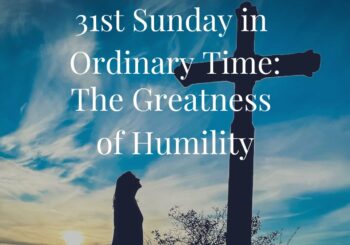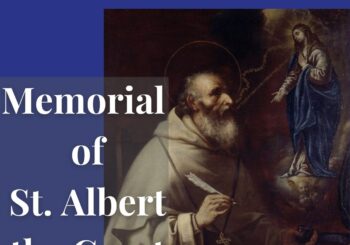
https://youtu.be/YqTycfHN1rQ
On this 31st Sunday of Ordinary Time, we hear Jesus denouncing the scribes and Pharisees and warning His disciples about following their example. As Tony Crescio explains, Jesus' criticism isn't so much about th...
Read More
Read More

